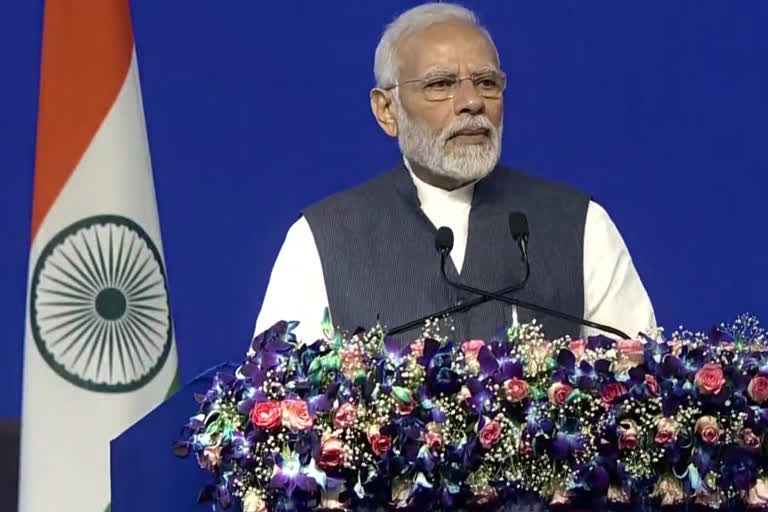New Delhi: Addressing Interpol's 90th General Assembly in New Delhi on Tuesday, Prime Minister Narendra Modi batted for international cooperation to address issues such as terrorism, corruption, narcotics trafficking, and other forms of organized crime.
Modi, who said that 'global cooperation for local welfare' was India's call to the international community, also significantly put in the country's request to the global policing body to issue Red Corner Notices (RCNs) as and when required. "Interpol can help by sending Red Corner Notices," he said days after the latter's denial to issue RCNs to 12 of India's most wanted fugitives.
"Corruption and financial crimes have harmed the welfare of citizens of many countries. Often, money has been taken from the poorest people in the world. Money laundering is a major source of terror funding, apart from human trafficking and drug trafficking," he added.
Explaining the Indian outlook towards security and peacekeeping in society, the PM noted that "There is a unique global outlook in India’s soul. This is why: India is one of the top contributors in sending brave men and women to the United Nations Peacekeeping operations. Even before our own independence, we made sacrifices to make the world a better place."
"Thousands of Indians fought and died in the world wars. From climate targets to COVID vaccines, India has shown willingness to take the lead in any kind of crisis. And now, at a time when nations and societies are becoming inward-looking, India calls for more, not less, international cooperation. Global cooperation for local welfare – is our call" he also said.
Highlighting the work of police forces in India, Modi noted that they "cooperate to implement more than 900 national and around ten thousand state laws". Bringing into context scenarios unique to the country such as a confluence of faiths and festivals which saw gigantic audiences, he lauded the heavy task of vigilance that came with it.
"There are hundreds of languages and dialects spoken. Massive festivals attract millions of devotees. For example, Kumbh Mela, the largest and longest spiritual mass gathering in the world, had 240 million pilgrims. With all this, our police forces work while respecting the diversity and rights of the people promised by the Constitution. They not only protect the people but also serve our democracy" he said.
Emphasizing the need to 'eliminate safe havens', the Prime Minister also explained that this was one of the key areas where cooperation was particularly required. "There can be no safe havens for the corrupt, terrorists, drug cartels, poaching gangs or organized crime. Such crimes against people in one place are crimes against everyone, crimes against humanity. Further, these not only harm our present but also impact our future generations. Police and law enforcement agencies need to devise procedures and protocols to increase cooperation" he also said.



